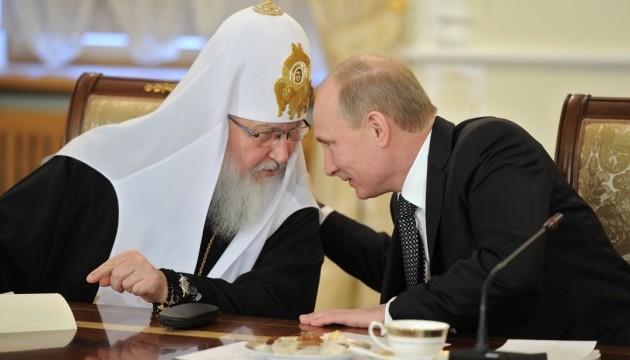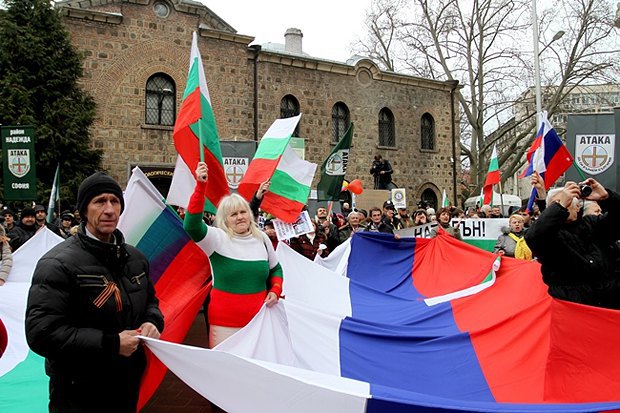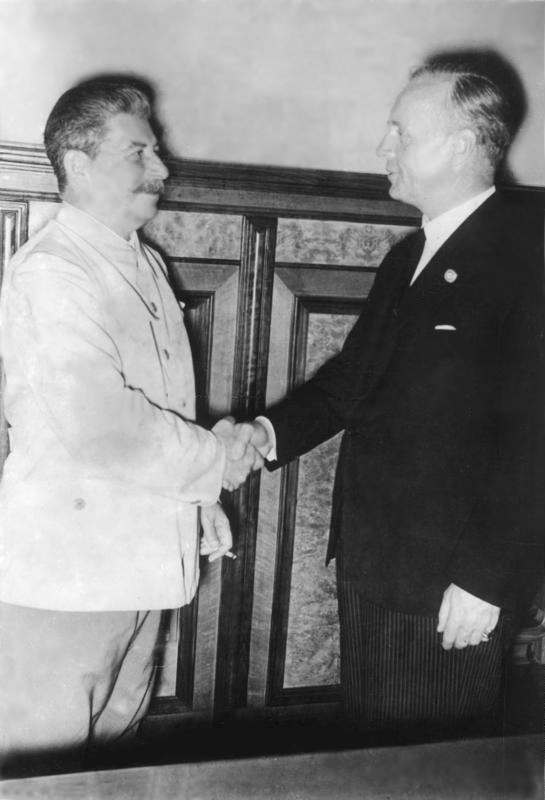Friendship treaty

Photo: golos-ameriki.ru
Read also:
- Russian aggression against Ukraine and international law: 25 key theses
- Russian attack on Ukrainian ships near Kerch Strait – full chronology
The Secretariat of the Verkhovna Rada states that the legislation will only relieve Ukraine of any obligation the Treaty foresees,
"According to the Article 70 of the Vienna Convention on the law of treaties, the said treaty termination relieves Ukraine of any obligation to implement it and does not affect the rights, the obligations or the legal position of Ukraine arising from the implementation of the treaty prior to its termination," reported the Secretariat of the Verkhovna Rada.
Nothing will change for Ukraine, says foreign relations expert

"Factually speaking, Ukraine draws a line at the situation which had started in 2014, because in practice the Treaty lost any significance. And, consequently, all its prescribed provisions - principles of collaboration in various fields - they are not executed. Thus, the further prolongation of the agreement makes no sense at all," Mr. Bielieskov explains.According to Bielieskov, Ukraine should expect effectively nothing new. Ukraine puts a logical period to the current development of the relations since they are not in compliance with the logic and spirit of the groundwork laid for them in the 1997 Treaty. Russian Senator Sergey Tsekov said to RIA Novosti, "In the current situation, Ukraine will be hit the hardest, [because] the agreement gave some opportunities in the economic field." Mykola Bielieskov is skeptical of this opinion.
"Practice has shown that even back in 2014 Russia fell back on the trade constraint. Thus, the existence of any agreements as such - and we also had the 2011 Free Trade Agreement with Russia - doesn't guarantee anything when the agreements are not executed," Mr. Bielieskov commented to Euromaidan Press and added, "I have doubts that Russians can put on restrains."Asked whether Russia can ignore the Ukrainian decision to not renew the friendship treaty and consider the agreement as valid, Mykola Bielieskov explained that under the 1969 United Nations Convention on the Law of Treaties, one of the sides can terminate any given treaty or withdraw from it. Ukraine observes these rules and there is nothing Russia can change anymore.
"After the Rada voting, only one more diplomatic note is needed and that's it - starting from 1 April 2019 the Treaty isn't in force as not extended for the next 10 years," Mr. Bielieskov clarifies.
Ukrainian Foreign Minister Klimkin explained that Ukraine used the agreement in the lawsuits it filed in international courts, that's why it was important to discontinue the friendship treaty rather than to terminate it. That's why it won't abolish the obligations of Russia which were established by the treaty before its expiration.
Read more:
- FSB tries to explain attack on Ukrainian ships, proves Russia broke its own laws
- Moscow pushing Ukraine toward becoming a nuclear power again, Pastukhov says
- Russian attack on Ukrainian ships near Kerch Strait – full chronology
- Russian wave of disinformation from the Azov Sea
- Kyiv must denounce 2004 Azov Sea accord with Russia now, Ohryzko says
- Constantinople moves to grant autocephaly to Ukrainian Church, outraging Moscow
- No end to Russia’s war until Kremlin achieves goals in Ukraine
- Ukraine restores course towards NATO membership
- Russia’s March-2018 gas war attempt against Ukraine, explained
- The Kremlin’s chaos strategy in Ukraine and its helpers
- Putin’s “hybrid” offensive against Ukraine
- Hague court rules Russia must compensate Ukrainian investors $159 mn for Crimea losses
- What Ukraine won and lost at the International Court of Justice
- Hague Court rules against Moscow on Crimea, so Moscow withdraws from Rome Agreement
- Ukraine accuses Russia of funding terrorism and racial discrimination in the Hague. Full introductory text
- Ukraine’s Donbas-reintegration bill branding Russia “aggressor state” passes first reading
- Analysts: By declaring Russia an aggressor, Ukraine has gained a great deal
- Ukraine’s Donbas law and Russia’s outrage
- The Verkhovna Rada declares Russia an aggressor country (2015)
- Russian aggression against Ukraine and international law: 25 key theses
- Stages of Russian occupation in a nutshell
- Budapest memorandum: non-proliferation diplomacy twenty years later
- Non-fulfillment of Budapest Memorandum showed the absurdity of disarmament, Turchinov says
- Moscow refuses to discuss Budapest Memorandum
- Statement by the Russian Ministry of Foreign Affairs regarding accusations of Russia’s violation of its obligations under the Budapest Memorandum of 5 December 1994
- Ukraine accuses Russia of violating Geneva agreement
- Chronology of the annexation of Crimea





